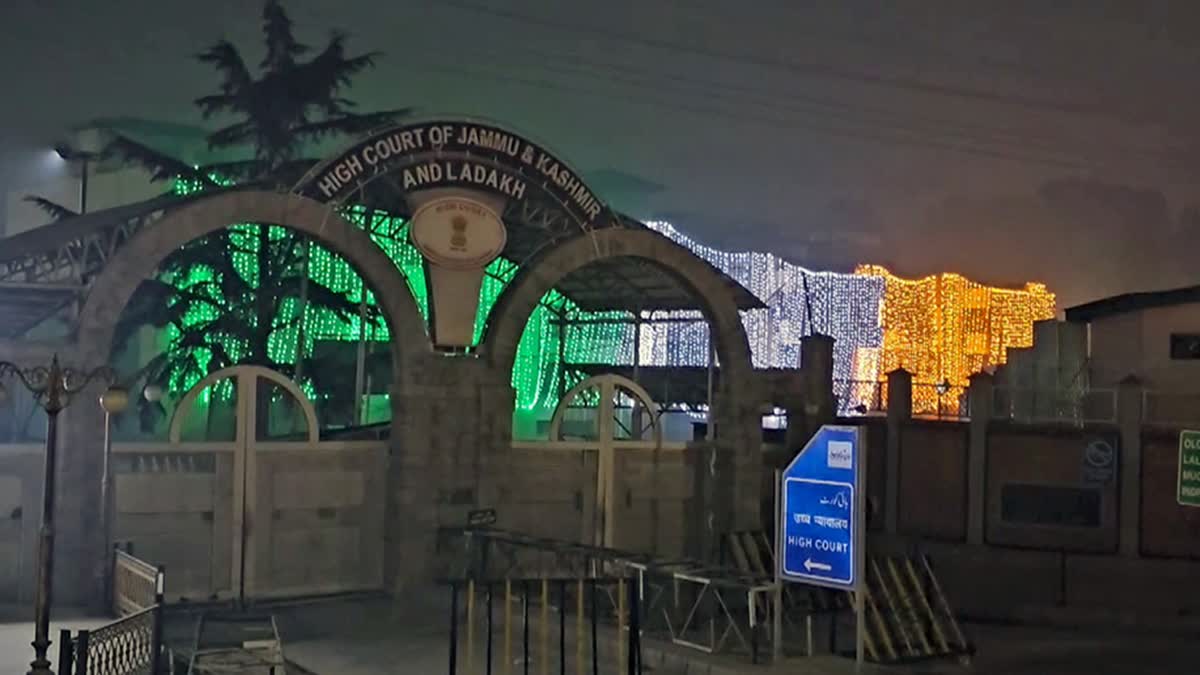Srinagar: In an interesting judgment, the High Court of Jammu and Kashmir and Ladakh has ruled that Kashmiri Pandit women who migrated from the Kashmir Valley in the 1990s due to security concerns will not lose their "migrant" status simply by marrying a non-migrant.
On November 11, a Division Bench of the High Court, consisting Justice Atul Sreedharan and Justice Mohammad Yousuf Wani, while hearing the case filed by Seema Koul and Vishalni Koul, declared that it would be discriminatory and unjust to revoke a woman's migrant status based on her marriage to a non-migrant. The bench felt that such a decision would be against the very principles of justice and fairness.
"In such a situation, to hold that the woman would lose her status as a migrant only because she, out of the natural urge of forming a family, had to marry a non-migrant on account of existing circumstances, would be grossly discriminatory and militates against the very concept of justice," the judges stated in their ruling.
The petitioners, both of whom migrated from Kashmir in the early 1990s, had applied for jobs under the migrant category, but their candidacies were challenged due to their marriages to non-migrants. They had approached the court while claiming that marrying a non-migrant should not strip them of their migrant status.
Petitioners' request to have her status revoked for marrying a non-migrant was recognized by the bench as a "question of public importance". The Court emphasized that these women were compelled to leave their families for no fault of their own and that it was not reasonable to expect them to stay single in order to preserve their status as migrants.
"Holding thus would be going against the nature of human beings," the Court noted while highlighting that male migrants were not similarly penalized for marrying non-migrants. "This practice further exposed the discriminatory nature of the system."
"Such a situation has arisen only on account of patriarchy that prevails in the human race. However, in matters relating to employment under the State/UT, such discrimination cannot be countenanced," the Court remarked, pointing out that gender discrimination in matters of employment was unconstitutional.
The High Court also made it clear that the petitioners had not lost their migrant status, as the legal definition of a "migrant" includes individuals who were forced to leave the Kashmir Valley after 1989, which was the case for both women. The Court dismissed the State's argument that the petitioners' marital status was relevant, stating that the original job advertisement did not specify that marrying a non-migrant would disqualify candidates.
Moreover, the Court rejected the State’s claims that the lack of disclosure about the petitioners' marital status caused material injustice. "The appellants (State) have not been able to show how material injustice has been taken place to those who could not get selected otherwise on account of such non-disclosure. Therefore, this argument is also rejected," the Court concluded.
Upholding the decision of the Central Administrative Tribunal (CAT), the High Court directed the State authorities to issue appointment orders to petitioners within four weeks.
Read more:



